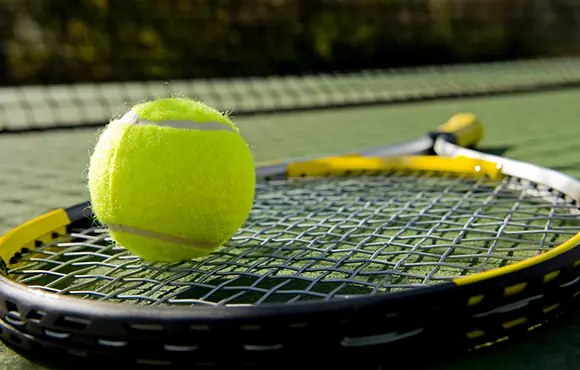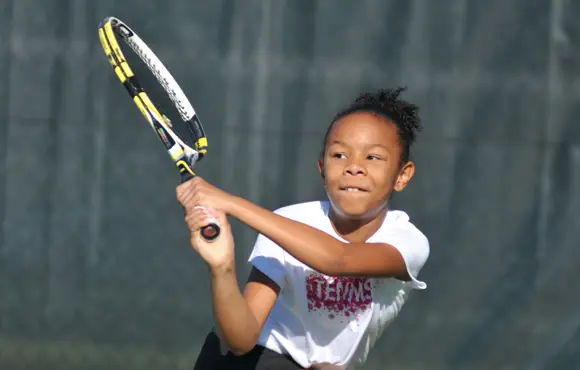Clear sapphire skies and rolling white dunes supply the perfect backdrop for a relaxing afternoon at Santa Barbara's famed beachfront. Sailboats skim the water, and college students, happy for a day away from their studies, bodysurf the frothy waves.
Although the soft sea breezes easily drift two blocks inland to the Pershing Park Tennis Center, the tranquil atmosphere does not. Nothing dispels my discomfort as I squirm, groan, and sigh watching my 14-year-old son, Charlie, play his final round match in the Central Coast Masters tournament.
It is only the consolation event for players aged 14-and-under, but to my emotional system it feels like Wimbledon! My wife, Nancy, sits stoically under her broad-brimmed hat behind sunglasses, trying, as if by example, to keep me quiet. Of course it doesn't work.
As I watch, Charlie charges into the net and gets in too close. His opponent lobs over his head.
"Oh my God!" I groan, barely able to contain myself. "That's the third time he's been lobbed over in the last three games! What does it take to make Charlie play deeper?"
"Shhh?," Nancy hisses. "Charlie will hear you."
"OK, OK, I'll keep quiet," I promise sheepishly, but moments later I forget myself and continue grousing.
The simple fact is that it's much easier to be reasonable when your own emotions are not involved.
Charlie's opponent has a far weaker backhand than forehand--a fact so obvious that even a novice player should notice it. (So why doesn't Charlie?) "What's he got against playing the guy's weak side and getting an easy win?" I moan. "Please talk softer," says Nancy, as she nods towards Charlie.
I bite my lip and try another approach, contorting myself with body-English, trying to will Charlie's shots towards the other kid's backhand. But telepathy works no better than emotional mutterings as Charlie's shots continue drifting into the other kid's wheelhouse on the forehand side.
The match teeters back and forth, which only makes things more agonizing for me.
I wince in pain with each point Charlie loses. I can hardly take it. Nancy can hardly take me, and the running commentary under my breath makes her threaten to move.
And guess what? I'm a professional sports psychologist. You could say that all the chickens—all that advice I've dispensed to other tennis parents over the years—are coming home to roost.
- 1
- of
- 5









Discuss This Article